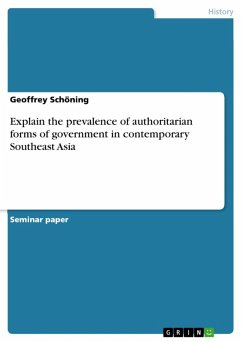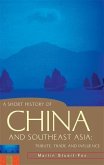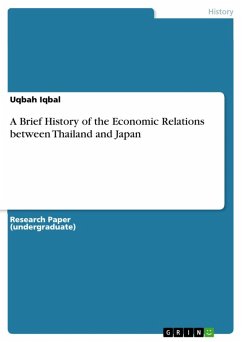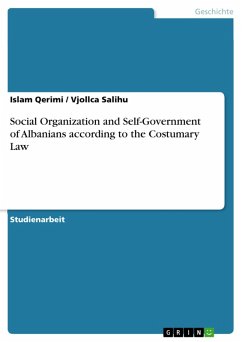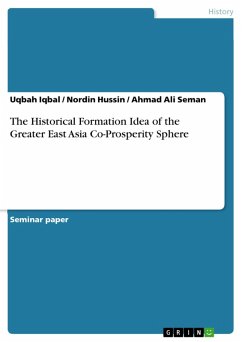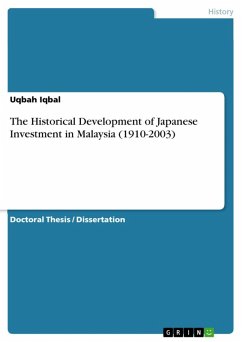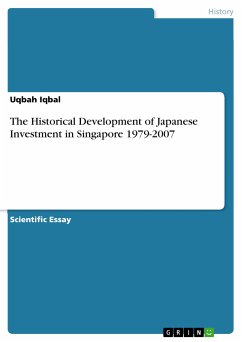Seminar paper from the year 2002 in the subject History - Asia, grade: A+, University of Auckland (Department of History), course: Seminar - Modern Southeast Asia: Constructing Identities 1870-1990s, Stage II, language: English, abstract: "If democracy means to carry gun; to flaunt homosexuality; to disregard the institution of marriage; to disrupt and damage the well-being of the community in the name of individual rights; to destroy a particular faith; to have privileged institutions such as the press which are sacrosanct even if they indulge in lies which undermine society - if these are democracy's details, cannot the new converts reject them?"1 For sure, they can and have done so - all over the world. The first associations in face of such a statement, however, tend to point towards Latin-American Generals or Caribbean dictators à la Papa Doc rather than to the actual author of this tirade against western political values. Interestingly enough, it was the ruling head of a Southeast Asian nation recently referred to as semi-democratic2 who came to the conclusion stated above: Prime Minister Mahathir of Malaysia, defending his form of government at a plenary session of the United Nations in 1991, uttered it. Indeed, there is good reason to assume that countries like Indonesia, Singapore and possibly Thailand would unanimously chime in with him, even though they too are considered semi-democracies or even proper ones, as is the case for Thailand and Indonesia.3 Without analysing the matter of local authoritarianism itself, it turns out quite clearly that some preliminary notes need to be made before one can substantially deal with the region and its political systems. What is democracy, and ,consequently, what is authoritarianism contrasted to it? Of course, there is no definition valid in all parts of the world; Matathir's quotation speaks volumes in this respect. Nevertheless, in the western- dominated societies at least, democracy could be defined as "that system of community government in which, by and large, the members of a community participate, directly or indirectly, in the making of decisions which affect them all."4 Further adjustments can then be made, such as the guaranteed competition of candidates for elective offices or the recognition of of civil and political liberties by the government.5 Given this admittedly rough picture of basic democratic principles, authoritarian rule appears wherever genuine citizen participation is restricted or, in the worst case, prohibited, and where civil liberties are curbed.6 Such a distinction is naturally far from being clear-cut, and can only be made gradually. Thus, although the forms of government [...]
Dieser Download kann aus rechtlichen Gründen nur mit Rechnungsadresse in A, B, BG, CY, CZ, D, DK, EW, E, FIN, F, GR, HR, H, IRL, I, LT, L, LR, M, NL, PL, P, R, S, SLO, SK ausgeliefert werden.

